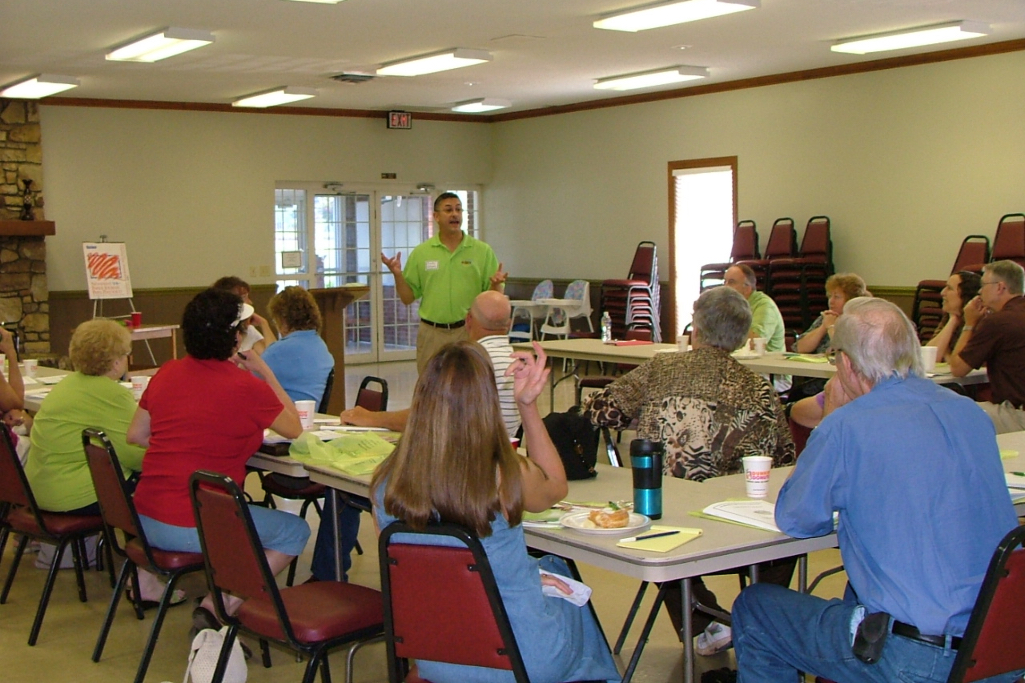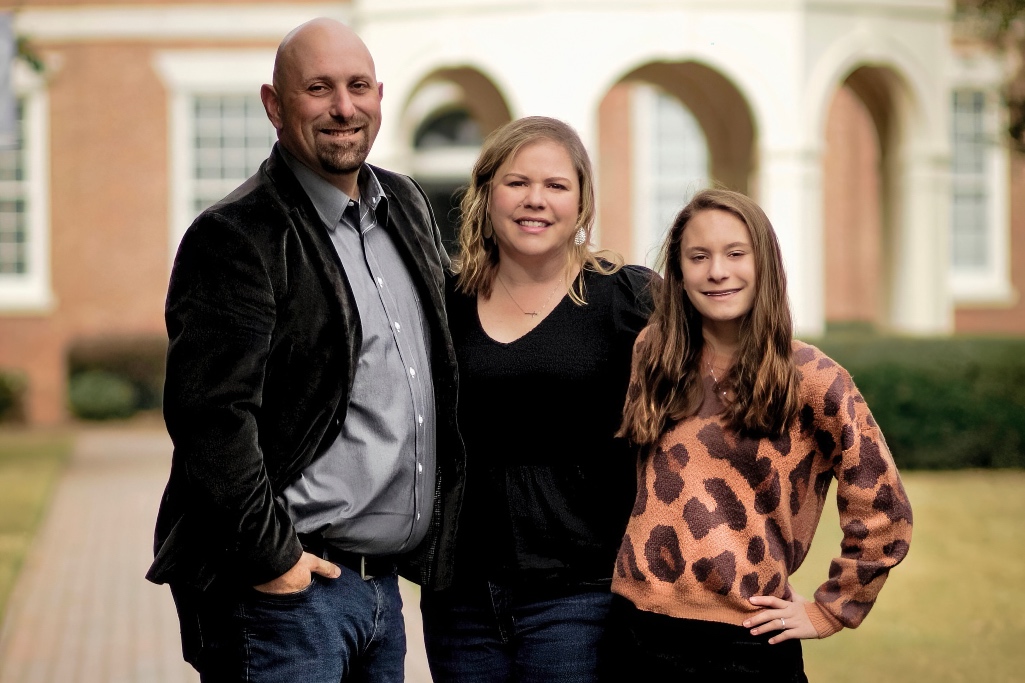
What began in 2006 as a gleam in the eye of Milton Hollifield at the Baptist State Convention of North Carolina has grown into a unique, multifaceted and award-winning ministry that has impacted the lives of more than 83,000 aging adults across the state.
Soon after Hollifield’s tenure began as executive director-treasurer of the state convention, he reached out to the Baptist Children’s Homes (BCH) of North Carolina for its help in developing a new ministry to serve older adults.
With no template to follow, BCH’s Sandy C. Gregory was tapped to not only lead the new North Carolina Baptist Aging Ministry (NCBAM) but to determine exactly what its focus would be. He spent the next year researching and traveling from Murphy to Manteo consulting with senior adult ministers, social service providers and the foremost experts in the field — aging adults themselves.
“When I would ask older adults what they desired most as they age, their answers were invariably, ‘independence,’ ‘to live in my own home’ and ‘to have purpose,’” Gregory remembers. This insight led to NCBAM’s mission – providing “help for the journey” to aging adults in ways that help them maintain their safety and independence in their own homes.
Gregory connected with a strong partner to help him identify how this new ministry could best serve older adults. With feet planted both in Baptist life and government services, Bobby Boyd, director of Catawba County’s Department of Social Services, provided input that would steer NCBAM toward the value of partnering not only across denominational lines, but with government agencies, civic groups and the private sector. Boyd still serves on NCBAM’s advisory team, providing invaluable feedback and encouragement.

While Baptist churches and their volunteers are the undisputed backbone of NCBAM, the ministry has also developed strong partnerships with various groups such as FEMA, the National Fire Protection Association, the N.C. Office of State Fire Marshal, Lowe’s, Home Depot, the N.C. Department of Insurance’s Seniors’ Health Insurance Information Program (SHIIP) and Meals on Wheels of North Carolina, just to name a few.
With a plan for the statewide ministry taking shape, the previous print shop for Charity & Children was outfitted for NCBAM offices and its call center. Gregory was joined by the editor of BCH’s Charity & Children publication Jim Edminson, who became NCBAM’s marketing director.
When a special phone number was acquired (877-50-NCBAM) for the NCBAM call center, the new ministry was up and running. To date, the call center has made 137,0000 connections and with the help of North Carolina Baptist volunteers, has met needs in all 100 counties.
While the call center was NCBAM’s first outreach, it has been followed by 13 more. These 14 outreaches directly or indirectly serve to fulfill the mission by addressing the key reasons older adults lose their independence. Outreaches include: Priority #1 Prevention, Wise Up Enrichment workshops, annual Aging Well Conferences, Caregiver Resources, Christ the Cornerstone Publications, Rampin’ Up! campaigns, Durable Medical Equipment outreach, Fall Prevention, Intergenerational Camps, Aging Adults Innovating Ministry conferences, and Servant Care, a special outreach to retired Baptist ministers and their spouses.
NCBAM’s two most recent outreaches could only have been attempted by an experienced ministry with a solid base of support. “One Hope” offers a spiritual response to the epidemic of social isolation and loneliness affecting older adults. In addition to education and resources, One Hope’s “Hope Line” receives calls from senior adults seven days a week. Trained volunteers encourage callers with a friendly voice and compassionate ear.
The ministry’s most ambitious outreach is its 14th. “Care Villages” are church- or community-based services for older adults. Ironically, Care Villages were the first dream on Gregory’s heart when he charted NCBAM — a vision he held tightly as the ministry grew. NCBAM currently operates two community-based villages and is planning a third.
However, with the participation of N.C. Baptist Churches, church-based Care Villages hold the potential to make the biggest difference in the lives of North Carolina’s growing aging population — which is projected to double over the next 20 years. Gregory envisions training and equipping Baptist churches to adopt the Care Village model to support not only their own members, but others in the community.
Since 2009, NCBAM has received 42 state and national awards for its leadership, programming and publications. However, nothing the ministry has accomplished would be possible without the support of North Carolina Baptists. Their volunteers represent the vast majority of our partners who sacrificially serve vulnerable older adults every day by building wheelchair ramps, providing friendly visits and transportation assistance, and by reducing social isolation and loneliness one call at a time on the NCBAM Hope Line.
(EDITOR’S NOTE — Carol Layton serves as director of communications and administration with NCBAM.)


